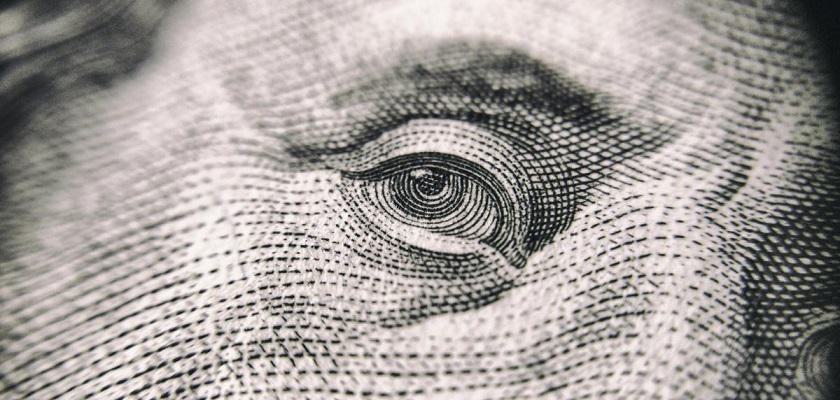“Then let us pray that come it may,
(As come it will for a’ that,)
That Sense and Worth, o’er a’ the earth,
Shall bear the gree, an’ a’ that.
For a’ that, an’ a’ that,
It’s coming yet for a’ that,
That Man to Man, the world o’er,
Shall brothers be for a’ that.”
— Robert Burns
“Go forth and shrink the state,” these are the final words with which Deirdre McCloskey chose to end her 2015 lecture to the Legatum Institute in London on her book "Bourgeois Equality," the third and final book in her Bourgeois Era series, wherein she ventures a thorough answer to the question — how did we get so rich?
“Nothing like the Great Enrichment of the past two centuries had ever happened before,” writes McCloskey, “Doublings of income—mere 100% betterments in the human condition—had happened often, during the glory of Greece and the grandeur of Rome, in Song China and Mughal India. But people soon fell back to the miserable routine of Afghanistan’s income nowadays, $3 or worse. A revolutionary betterment of 10,000%, taking into account everything from canned goods to antidepressants, was out of the question. Until it happened.”
So, why did “it'' happen? Why this massive civilizational transformation since 1800? Why has our modern world with all its wealth and liberating effects come to pass?
Put simply, by respecting the freedom of ordinary people to make their own way absent elite control.
At least that’s what McCloskey claims.
Exploitation didn’t make us rich. Slavery didn’t make us rich. Not even capital accumulation or savings or "sound" institutions made us rich.
No, everyday people being set free to build the future for themselves made us rich. And can make us richer still.
In the face of immense civilizational challenges, human beings are presented with a basic choice — create or control — and McCloskey answers the mystery of our modern economic miracle with the former every time. In particular, McCloskey praises the ingenuity and creative power of everyday “bourgeois” people and their virtue. As for the latter option of control, McCloskey reminds us such has been the story of government authorities and exploitative gangs for time immemorial.
History is a long series of one indictment after another of failed plans, promises and programs for elites to oversee ordinary people. Such schemes have only given most of us impoverishment, not improvement. The shepherds, it seems, keep failing the sheep. Perhaps they are in the shepherd game, not for the sheep they fleece, but for themselves.
Does not centralized political control always seem to lead to an attenuated “us” — a small clique of ruling elites — not “living for others” but instead carrying out their own ignorant plans to save the human race at the expense of the vast majority of people they claim to help?
Imposition and exploitation may make certain ‘special’ people better off in the short term but always at the expense of the vast majority of people in the long run. This is the story of most of human history. Then around 1800, we got rich by dropping our shackles for a time.
As McCloskey argues, more than any economic factor, theory of exploitation, or institutional arrangement, the embodiment of our ideas is what enables us to flourish as a species — in particular, the bourgeois virtues embodied by everyday people. What are the bourgeois virtues? Faith, Hope, and Love. Justice, Courage, Temperance, and Prudence.
Respect such virtues and protect everyday people’s equal dignity and liberty to pursue their own betterment through trade and innovation — rather than subservience and propitiation to earthly authorities — and watch the Great Enrichment continue. Celebrate the creative, enterprising, and tinkering “town folk” across the world by granting them the right to become as rich as they wish absent a central plan, and we will all be made better off in the long run, even the most “wretched” and “least” among us.
Such is what McCloskey calls the “bourgeois deal.”
I am willing to take this deal. I can get behind this sort of politics. This is why I got into politics in the first place: to ensure my fellows are as free as possible so they may pursue a peaceful and prosperous future.
Pray we may again have hope in our liberty and virtue as everyday people to create a peaceful, cooperative, and just city while remaining wary of our lust to control our fellows — a place of sense and worth where everyone can have a go.
Joey Clark is a native Alabamian and is currently the host of the radio program News and Views on News Talk 93.1 FM WACV out of Montgomery, AL M-F 9 am-12 noon. His column appears every Tuesday in 1819 News. To contact Joey for media or speaking appearances as well as any feedback, please email newsandviews931@gmail.com.
The views and opinions expressed here are those of the author and do not necessarily reflect the policy or position of 1819 News. To comment, please send an email with your name and contact information to Commentary@1819news.com.
Don't miss out! Subscribe to our newsletter and get our top stories every weekday morning.










